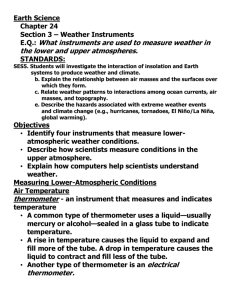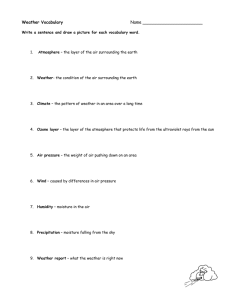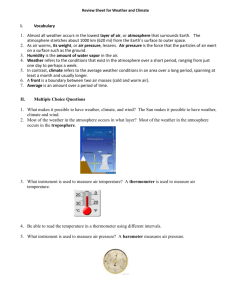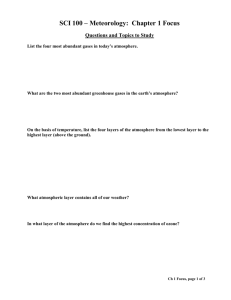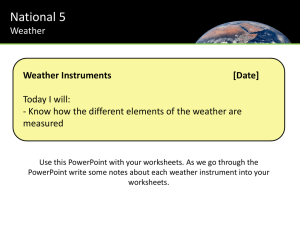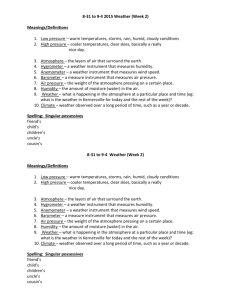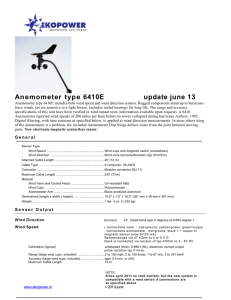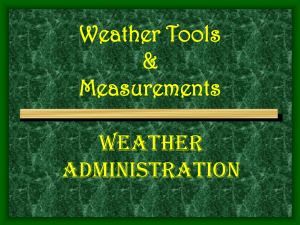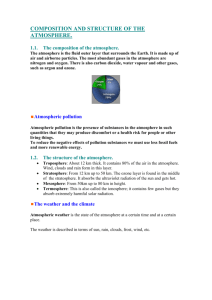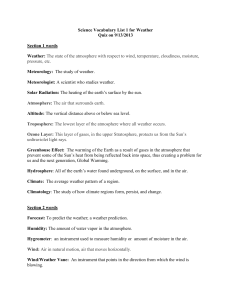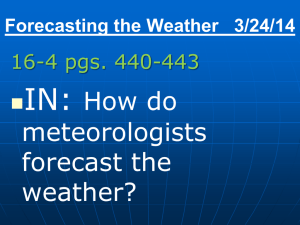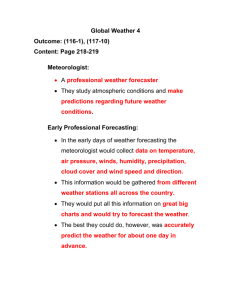Measuring Lower-Atmospheric Conditions
advertisement
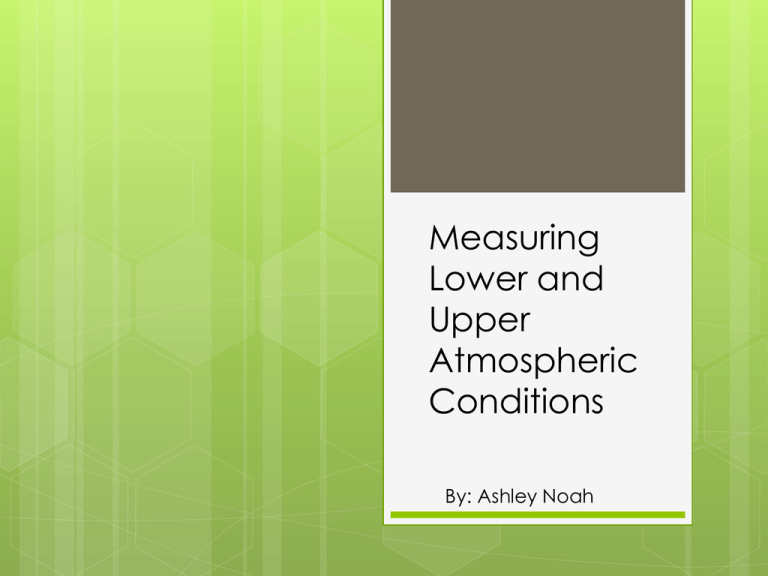
Measuring Lower and Upper Atmospheric Conditions By: Ashley Noah Measuring LowerAtmospheric Conditions Air Temperature instrument that measures and indicates temperature is called a thermometer. When the temperature rises it causes the liquid to expand and rise in the tube. Electrical thermometer-the electric current that flows through the material which is translated into temperature readings. Air Pressure Changes in air pressure affect air masses Barometers measure atmospheric pressure A drop in air pressure usually is indicated by a front approaching. Wind Speed Anemometer measures wind speed Anemometer is usually consists of small cups that are attached by spokes to a shaft that rotates freely The anemometer works by when the wind pushes against the cups and causes them to rotate. Wind Direction Wind Vane determines the direction of wind Wind Vane is commonly an arrow-shaped instrument that turns freely on a pole as the tail catches the wind. Wind direction can be described by using compass directions or by degrees Measuring UpperAtmospheric Conditions Radiosonde Radiosonde is an instrument package that is carried high into the atmosphere by weather balloon to measure humidity, air pressure and air temperature Radiosonde sends measurements as radio waves to a receiver that records the information. Radar Radar-instrument for determining weather conditions in the atmosphere Radar stands for Radio Detection And Ranging Uses radio waves to determine velocity and location of objects Weather Satellites Weather satellites collect important information about the atmosphere The direction and speed of the wind at the level of the clouds can be measured by examining a continuous sequence of cloud images Computers Meteorologists use supercomputers to figure out the weather or by solving the math equations that describe the behavior of the atmosphere Data can provide information that is useful in forecasting weather changes Computers may greatly improve weather forecasts
